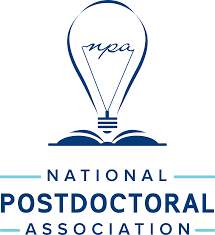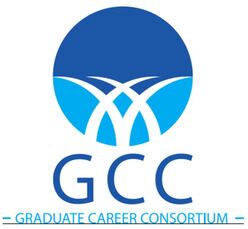In Fall 2018, I started writing a series of pieces for the NIH Broadening Experiences in Scientific Training (BEST) Student/Postdoc Blog. As these pieces are no longer accessible online, I wanted to re-share them in a continuing series NIH BEST Blog Rewind. Here, I will add some additional thoughts to what was originally authored in 2018, denoted in bold (dark red) throughout the piece.
Original Publication Date: December 2018 NEW Perspectives, Comments, & Insights
Part of a series revisiting my NIH BEST Blog pieces.
This brings to mind the Life Design work coming out of Stanford University. One of their main points in life design is that there are many potential "yous" out there...a variety of things you could do with your life that would be equally fulfilling. I talked a bit about the Designing Your Life book in an earlier post but you can also check out this excellent presentation from one of the book's co-authors, Bill Burnett, below.
Over the past several months I have thought a lot about my career. I have considered roles in life science consulting, as a medical science liaison, in medical writing, and, most recently, in career & professional development services. In this blog post, I will focus on what I learned about these particular careers and my personal evaluation of their fit for my life. Hopefully walking through this process lets you learn a bit about these careers (which may be useful in your own exploration) as well as how I have weighed the pros and cons of each career path to narrow my options to my final two.
Life science consulting is a growing field that includes companies such as Clearview Healthcare Partners, Putnam Associates, L.E.K., Clarion, and Triangle Insights Group. You can read more about consulting as a career for Ph.D.s and about one Ph.D.’s journey to life science consulting here. Many of these companies hire MBA graduates, but they will often hire Ph.D.s with domain expertise. While the compensation for Ph.D. trained consultants in these companies is normally quite good ($80,000+ (in Dec 2018), now ~$90,000 according to Glassdoor), that comes with expectations of long hours and, often, a lot of traveling.
Many Ph.D.s transition from consulting to work in the biotech or pharmaceutical industry as the hard life of a consultant is difficult to maintain for more than a few years. I think this type of career can be particularly straining on someone with a family and often is more appealing to single individuals. These impressions are my own and while the consulting life certainly can work for some people, I realized pretty early on that it wouldn’t for me. If you are interested in trying out the field, though, both Clearview & Putnam offer summer programs for Ph.D. students and postdocs to learn more about the consulting role and visit their offices.
The medical science liaison (MSL) role is also a growing one for Ph.D.-trained scientists. The career involves establishing relationships with key opinion leaders (KOLs), typically clinicians, to learn more about their therapeutic needs. MSLs most often work for pharmaceutical companies and are tasked with educating KOLs on the advantages of their company’s products. While the position is not directly in “sales,” it is hard for me to disentangle the MSL role from selling a product (if only selling via education). MSLs often travel to meet with KOLs in their designated geographic area/territory and spend considerable time on the road, and the compensation is typically excellent ($90,000+).
MSL experience is highly desirable for potential employers, which brings up the Catch 22 problem of breaking into the MSL role if someone doesn’t have experience as an MSL. I think one’s first MSL job is often about therapeutic area fit. For example, if your Ph.D. and postdoctoral research have focused extensively on glioblastoma and Company X is about to launch a new drug to treat that particular type of cancer, they are more likely to hire you to be an MSL for that product.
There are programs that will help train you in the language of the MSL field that may help you secure a position, but I can’t personally speak to their value. In the end, I found it difficult to find MSL positions that fit my research expertise in neuroscience (many pharmaceutical companies have moved out of this therapeutic area, though this appears to be changing) and also was a bit uncomfortable with the “selling” that went with the role. I know many MSLs, though, and they all seem very satisfied with the role. Check out the MSL Society’s website for more resources.
Medical writing is a diverse career field encompassing individuals focused on regulatory writing, manuscript services, and broad-based science communication. Regulatory writing for the Federal Drug Administration (FDA) and other government bodies is a niche area in high demand.
Read more about Regulatory Affairs as a career in the excellent UNC TIBBS Career Blog.
The medical writing occupation is nice due to its flexibility—many writers work from home or remotely. The average compensation for a medical writer is ~$75,000 but note there is a large range of variability in the duties and salaries associated with these roles. In my personal experience, regulatory affairs writing roles are in particularly high demand.
If you are interested in this career path, consider joining the American Medical Writers Association (AMWA), which provides a variety of useful resources, offers a very reasonably-priced student membership, and has local chapters across the country to facilitate networking.
Want to learn more about medical writing?
AMWA's Ultimate Guide to Becoming a Medical Writer is an excellent place to start!
A great way to show competency as a medical writer is to get experience writing more than scientific papers. I have personally blogged for a local organization focused on advances in the healthcare industry. In addition, writing for a local newsletter on your campus or via an organization like the National Postdoctoral Association (The POSTDOCket) can give you experience preparing pieces for broader audiences and under a timeline. If you can’t work with an existing media outlet, you can publish your own articles on LinkedIn (see an example here), which is a great way to build a portfolio of expertise not just in writing but also in whatever scientific/medical area you focus on. For example, you could write about particular therapeutic areas that you want to work in as an MSL (dual-purpose activity!). After speaking with several people in the field, I have continued to pursue the medical writing career path. It sounds like a great mix of scientific rigor and work-life balance.
For another perspective on medical writing as a career, see this interview with Dee Rodeberg from the UNC TIBBS Career Blog.
| I am now actively involved in the Carolinas Chapter of AMWA. So, if you live in the Raleigh-Durham area and are interested in this career path, check out the events page of our website for upcoming information sessions & networking opportunities! And find your local AMWA chapter here. |
Ph.D. Student & Postdoctoral Fellow Support & Professional Development is a career area that I have been pursuing of late. Individuals in this field work for universities (often in the Graduate School or Office of Postdoctoral Affairs) and assist trainees in their professional development and career exploration. A person in this role can be seen as a type of career coach and often leads workshops on using LinkedIn, resume writing, networking, and job negotiation. These roles are often multifaceted and can include liaising with faculty who have questions about the appointment process and trainee benefits as well as building connections outside the university for potential trainee internships or shadowing opportunities.
Note, the GCC now has a trainee membership for graduate students and postdocs interested in being better connected with professionals working in this space.
This is a career area that I am definitely passionate about and could see as a good fit for me in terms of being a rewarding career with excellent work-life balance.
I have also taken on leadership positions with the NPA & GCC. Both organizations have bright futures ahead. The NPA recently announced the hire of a new Executive Director and GCC membership is rapidly growing (~15% increase in membership since 2018)...now with over 450 members. It is a great time to get involved in both organizations either as a postdoc (NPA) or budding career/development professional (GCC).
I will talk more about the challenges of navigating a multi-prong career search in the future.
What I will say in closing is that the keys to performing a comprehensive career exploration search are to:
- Start early
- Talk with people in the role you want via informational interviews (use LinkedIn to find these people—I love the alumni tool as you have an instant connection with alumni from your current or former school)
- Make use of national organizations that are focused on a career area of interest to you and go to their social events to network with and learn from professionals
- Stay in touch with people at companies or in careers you are interested in who may be able to let you know of job openings as they become available
- Keep an open mind
As mentioned earlier, there are many lives you can live and feel fulfilled. The key, then, is to realize that fact early, explore multiple career options, and find a few paths to pursue with intent. You may be surprised to discover where it all ultimately leads but by keeping a few options open, you will leave room to pursue exciting opportunities as they arise (Planned Happenstance).
Career Exploration Series on PassioInventa
The Rewards of Life Sciences Consulting: A Conversation with Putnam’s Remco op den Kelder
Top 10 List Of Alternative Careers For PhD Science Graduates
What Informational Interviews Can Do for You
What do we know about Ph.D. scientists’ career paths?
Highlighting data from the Council of Graduate Schools' PhD Career Pathways Program
Association of American Universities (AAU) PhD Education Initiative
Activities & Reports
From the Reflections Blog
Start Here (using Design Thinking in career exploration)
Career Exploration 101
The Future of Work (and the transferable skills you build pursuing a PhD)
NIH BEST Blog Rewind Series
Pondering the "next step" as a late-stage postdoctoral fellow
Is a postdoc worth it?
Resources
Designing Your Life worksheets
(Informational) Interviewing & Networking Tips from PhD+ (UVA)
Explore Careers via Vanderbilt's Beyond the Lab Video Series








 RSS Feed
RSS Feed